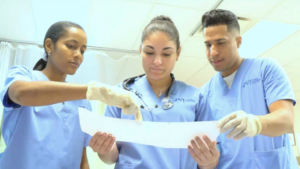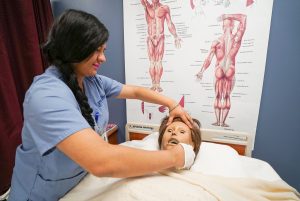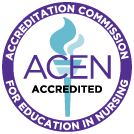Patient care technicians play an important role in healthcare facilities since they work one on one with patients and doctors. They’re often the main source of communication between the two and it’s often up to the patient care technician to have a solid grasp of communication skills. They’re responsible for being attentive and empathetic towards their patients and their families when it comes to needs and feelings.
Where Are Patient Care Techs Usually Employed?
The patient care technician school is designed to train students for an entry-level position in their chosen career field. Patient care techs can work in a variety of healthcare facilities including the following:
 Hospitals
Hospitals- Nursing home facilities
- Home health care agencies
- Dialysis facilities
- Blood banks
- Rehabilitation centers
- Other healthcare related environments
Students will also learn about the basic types of patient care, home care, and health care involved with their career. Students are required to receive in-service training and certifications in CPR, Domestic Violence, Assistance with Self-Administered Medication Training, HIV/AIDS, Infection Control and Universal Precautions, and Understanding Alzheimer’s disease. Once a student has completed the program they will possess the necessary skills and hands on experience they need for an entry-level position in this career field. PCT graduates are eligible to take the State Certification Nursing Assistant Exam.
What Does a Patient Care Tech On the Job?
The responsibilities of patient care tech depend on the environment they’re working in, but in most cases their tasks are revolved around caring for patients. This career field can be one of the most rewarding jobs if you like to help people and make a difference. The job requires having your passion shine through when helping patients and doctors and being sure to communicate clearly between the two. Just to name a few of the duties you can be expected to perform on the job are the following:
- Blood draws
- Taking vital signs
- Performing ECGs
Patient care techs are usually interacting with many people throughout the, so it’s best to know this is a social occupation. At FVI School of Nursing and Technology, students can expect to receive hands-on training and experience in real world scenarios. This hands-on experience will help to further advance their career and to be prepared for when they enter their position. Other job duties a patient care tech can expect to handle throughout the career include the following:
- How to insert intravenous saline locks
- Performing catheterizations
- Nasogastric tube removal
- Efficiently removing staples and sutures
- Caring for wounds properly
- Immobilizations
- Properly conducting an ECG
- Splints
- Knowing how to handle emergency room procedures
These hands-on skills will allow students to be ready to enter the workforce and to succeed at their career as a patient tech. Students have the option of choosing a class schedule as well to fit their needs if they have responsibilities outside of school. Every graduate is offered job placement assistance to help get them on the fast track of their new career as soon as possible.
Do You Need to be Certified?
Working in the healthcare field is rewarding, but when it comes to certification it can be vague. Certain careers such as medical assistant have a certification available, but isn’t required to enter the career field. Students who are in the patient care tech field require in-service certificates and diploma and must sit and pass their state Certified Nursing Assistant written and practical exam before working in a hospital setting.
What Are Some Other Skills Required to Work as a Patient Tech?
 The patient care technician program in Florida is designed to ensure students have the necessary skills to pursue their career and they’re formally trained for their position. Once students have completed the program, received their certificate, they have gained the necessary skills to enter an entry-level position. Other necessary skills they’ll learn throughout the program include the following:
The patient care technician program in Florida is designed to ensure students have the necessary skills to pursue their career and they’re formally trained for their position. Once students have completed the program, received their certificate, they have gained the necessary skills to enter an entry-level position. Other necessary skills they’ll learn throughout the program include the following:
- Caring for wounds
- Occupational therapy
- Operation of lab equipment
- Taking vital signs
- Geriatric procedures
Studying for a certificate can take between eight months to a year before students have gained the full knowledge necessary for their career. The time frame is based on how long it takes to complete the program and depends on the commitment of the students.
Receiving a certificate may increase job offers and salary since you have proof you’ve received the full training and knowledge necessary to be a patient care technician. Students who complete the advanced patient care technician school in Miami will also have several certification options available to them:
- Certified patient care technician
- Phlebotomist
- Certified nurse assistant
We recommend students take the exam through the NHA (National Healthcare Association) before they enter the workforce.
Contact us today to get you patient care tech career started! Apply now or learn about FVI’s many other healthcare training programs in Florida.
More Information Here:
http://www.homehealthaideguide.com/hha-training/states/florida-hha/









